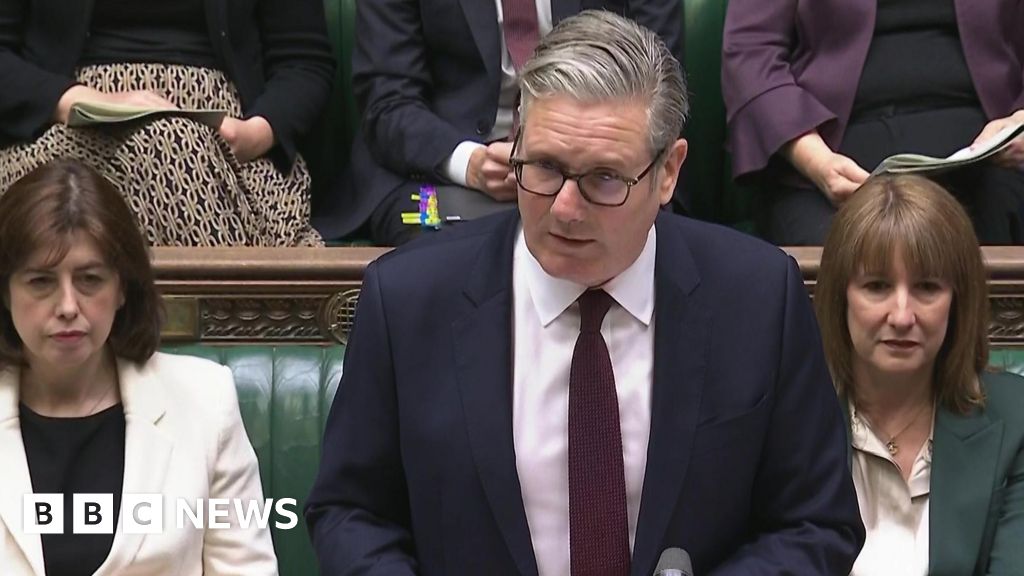Bessent Steps Up Criticism of Fed as Auditions for Chair Intensify

It is an unwritten rule that Treasury secretaries avoid interfering with the workings of the Federal Reserve. The Fed is an independent institution, one that most policymakers believe benefits the economy by being shielded from the winds of politics.
President Trump has made it clear that he does not subscribe to that view. He has openly mused about replacing Jerome H. Powell — whom he handpicked as the Fed’s chair during his first term — with someone who will do his bidding and lower interest rates, with little regard for the economic consequences.
As a result, auditioning for the job has begun in earnest, and Treasury Secretary Scott Bessent, who is among several contenders even as he leads the search process, has shown a new willingness to deliver broadsides against the policies of the central bank.
Mr. Bessent has said he likes the Treasury role and will do whatever job Mr. Trump wants. But in recent weeks he has signaled that, if he led the Fed, he would push for the lower borrowing costs that Mr. Trump has been demanding.
In public appearances, he has echoed the president’s complaints that the Fed has been too slow to cut interest rates and has said its officials are misunderstanding the impact that tariffs will have on prices. Its policymakers have broadly argued that levies of the kind that Mr. Trump has put in place or threatened will raise consumer prices while slowing the country’s economic growth.
“I guess this tariff derangement syndrome happens even over at the Fed,” Mr. Bessent said on “The Ingraham Angle” on Fox News this month.
Mr. Bessent tends to frame his criticism of the Fed as hindsight, insisting that he will only comment on mistakes it has made in the past and not weigh in on future decisions. In an interview on CNBC last week, however, the Treasury secretary took issue with the most recent economic projections by the central bank’s officials and suggested that it was being political.
“There seems to be a big dispersion in the so-called dot plot, the summary of economic projections, between the Trump appointees and the non-Trump appointees,” Mr. Bessent said. “I’ll let you read into that what you want.”
Four times a year, the Fed releases an updated set of projections that show not only how policymakers expect the economic backdrop to evolve but also where they anticipate interest rates are headed over the next couple of years. The most recent release showed a very divided Fed, with a majority of officials expecting half a percentage point’s worth of cuts this year and another large cohort forecasting steady interest rates over that period.
More recently, two Trump-appointed Fed governors — Christopher J. Waller and Michelle W. Bowman — have made the case for rate cuts as early as this month. Both said such cuts should happen as long as inflation stayed tame, a more accelerated timeline than the approach endorsed by other Fed officials, who have argued that there is no urgency to reduce borrowing costs at the moment.
Mr. Bessent’s comments could complicate matters if he is nominated and confirmed by the Senate to be chair of the Fed. He would need to earn the support of the Federal Open Market Committee, the central bank’s 12-person policy-setting committee, whose judgment he has openly criticized in his role as Treasury secretary.
But that could be a challenge given Mr. Trump’s insistence that his replacement for Mr. Powell, whose term ends in May, must back interest rate cuts.
“If you make the criteria for getting selected loyalty, then almost anybody that comes in is going to have that stain,” said Blake Gwinn, head of U.S. rates strategy at RBC Capital Markets. That, he warned, risks creating a difficult balancing act for the next chair, who may have to prove that loyalty while also “proving to the rest of the committee that they can support you.”
Wading Into Politics
Mr. Bessent, a top adviser to Mr. Trump’s 2024 election campaign, was viewed favorably by markets as someone who could moderate the president’s instincts on trade and operate on a bipartisan basis. A former hedge fund manager, he previously was the top investor for the liberal philanthropist George Soros and was a donor to Democrats such as former Vice President Al Gore.
As Treasury secretary, however, Mr. Bessent has not hesitated to wade into politics. He has mocked Elon Musk’s weak poll numbers and sought to discredit the work of the Budget Lab at Yale, which produced estimates saying the domestic policy bill that Republicans recently passed would disproportionately benefit the rich, because it has former Biden administration officials on staff.
Such commentary has drawn the attention of former Treasury secretaries, including Lawrence H. Summers, a Democrat who this week accused Mr. Bessent of launching “ad hominem attacks” and challenged him to a public debate on economic analysis. Less than two hours later, Mr. Bessent blasted comments by Mr. Summers, who had also compared the lost Medicaid coverage in the policy bill to the Texas flood tragedy in an ABC News interview, as “feckless and deeply offensive” and demanded a public apology.
Mr. Bessent, 62, is seen as one of several contenders for the Fed’s top job. Kevin M. Warsh, a former Fed governor who was almost chosen for the role during the first Trump administration, is also seen as a potential pick, as are Kevin A. Hassett, chair of the National Economic Council, and Mr. Waller, whom Mr. Trump nominated as a governor in 2019.
Mr. Warsh has also been critical of the Fed in recent days. He argued on Monday on the Fox Business Network that tariffs are not inflationary and that the U.S. economy was being held back by “bad economic policies coming from the central bank.”
At a cabinet meeting on Tuesday, Mr. Trump accused Mr. Powell of trying to help Democrats win the 2024 election by cutting interest rates last year. He then looked at Mr. Bessent and said: “I like you better.”
Some of Mr. Trump’s advisers have discussed the possibility of having Mr. Bessent serve as Fed chair and Treasury secretary simultaneously, according to a recent Bloomberg News report. Asked about that on CNBC this week, Mr. Bessent demurred but said he was aware of a 1930s precedent for such a dual role, which was held by Henry Morgenthau Jr.
The Federal Open Market Committee, which the Fed chair also typically leads, comprises all seven members of the Federal Reserve Board and a rotating set of presidents from five of the regional reserve banks.
At each of the eight policy meetings of the year, the committee votes on interest rates. The Fed chair typically seeks to forge a consensus among officials, which is seen as important to ensure that communication around any policy action is clear and not at risk of confusing financial markets.
The Treasury Department did not respond to requests for comment about how Mr. Bessent would approach the Fed job.
Mr. Bessent has previously been a proponent of the Fed’s independence. At his Senate confirmation hearing in January, he said, “I think on monetary policy decisions, the F.O.M.C. should be independent.”
As Fed chair, Mr. Bessent would have an influential role in potential changes to the central bank. While he has not spoken at length about such changes, his chief of staff, Dan Katz, last year co-wrote a Manhattan Institute report that called for restructuring the terms of Fed board members and giving reserve banks more power as part of a strategy to “check the ability of the U.S. president to completely dominate the balance of power on the F.O.M.C.”
“We propose a series of reforms aimed at recalibrating the Fed’s governance to ensure that it remains insulated from day-to-day politics while enhancing its accountability and democratic legitimacy,” said the report, which Mr. Katz wrote with Stephen Miran, who is now chair of Mr. Trump’s Council of Economic Advisers.
High Stakes for U.S. Debt
Mr. Bessent has been rebuking the Fed amid Mr. Trump’s torrent of attacks on Mr. Powell for his view that the central bank does not need to be in a hurry to lower interest rates. The president’s pressure stems in part from the rates’ impact on the cost of paying back the federal debt — an expense that is poised to skyrocket because of the new Republican tax and spending law. In a handwritten note last week, he accused Mr. Powell of costing the country a “fortune.”
“If they were doing their job properly, our Country would be saving Trillions of Dollars in Interest Cost,” Mr. Trump wrote in a separate social media post that day. “The Board just sits there and watches, so they are equally to blame.”
Mr. Trump was also fiercely critical of Mr. Powell during his first term. Mr. Trump’s first Treasury secretary, Steven T. Mnuchin, was more careful in addressing those attacks and routinely emphasized the importance of the Fed’s independence.
One question that would loom over Mr. Bessent if he became Fed chair is to what extent he would factor the government’s debt-servicing costs into decisions about interest rates. As Treasury secretary, he is ultimately responsible for how the country manages its debt by issuing U.S. government securities. Right now, interest costs on the federal debt are expected to total about $1 trillion a year.
Before the election, Mr. Bessent was a staunch critic of the strategy undertaken by his predecessor as Treasury secretary, Janet L. Yellen, whom he accused of disproportionately issuing short-term, rather than long-term, Treasuries to keep borrowing costs lower to support the economy ahead of the national vote. The purported rationale was that investors competing for a limited supply of longer-term debt would help keep a lid on yields, which fall as prices rise.
Mr. Bessent, however, has stuck to the same approach. He told Bloomberg TV late last month that it would not make sense to increase sales of longer-term securities given the current level of yields. The 10-year Treasury note, which underpins corporate and consumer borrowing, stands at 4.39 percent.
Despite his critique of the Fed’s policies, Mr. Bessent has steered clear of directly assailing Mr. Powell, with whom he has breakfast weekly. He described their conversations as “lively” in the CNBC interview, and while he demurred about whether he wanted Mr. Powell’s job, he did reveal that he preferred some things about the Fed.
“We do a home game and away game,” Mr. Bessent said of his meals with Mr. Powell. “He comes to the Treasury, I go to the Fed.”
He added: “The Fed’s food is much better, so I enjoy breakfast over there.”
What's Your Reaction?
 Like
0
Like
0
 Dislike
0
Dislike
0
 Love
0
Love
0
 Funny
0
Funny
0
 Angry
0
Angry
0
 Sad
0
Sad
0
 Wow
0
Wow
0











































